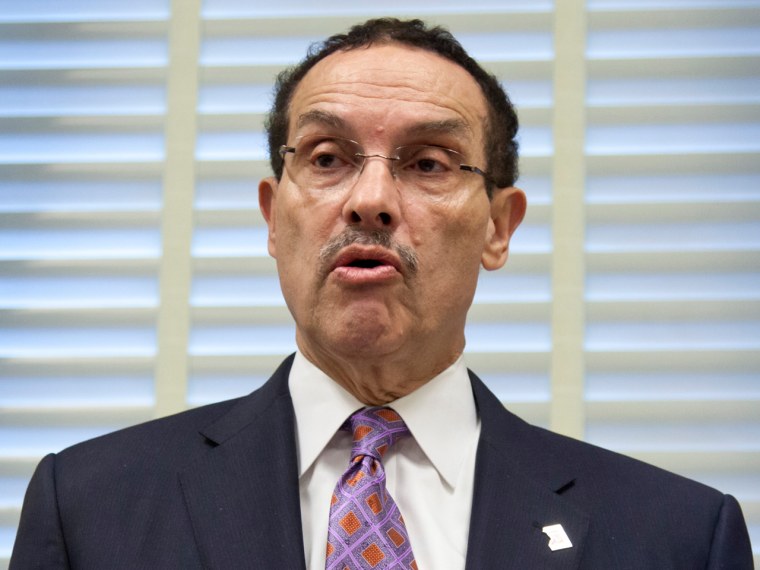Washington, D.C.'s Mayor Vincent Gray on Thursday vetoed the so-called "living wage bill" that would have required big-box retailers such as Wal-Mart to pay workers at least $12.50 an hour.
“While the intentions of its supporters were good, this bill is simply a woefully inadequate and flawed vehicle for achieving the goal we all share,” said Gray in a statement. Formally called the Large Retailer Accountability Act of 013 (LRAA), Gray's statement said the bill would have harmed job growth and economic development.
The bill had set up a clash between the mayor, the bill's supporters and the big retail chains that was being watched closely by labor and other cities across the nation. Workers at retailers and fast food restaurants have been holding increasingly large and vocal protests to boost the federal minimum wage of $7.25 an hour. Businesses have argued that raising the wage would end up harming workers by reducing jobs.
Wal-Mart had said it would not build three of six planned stores if the D.C. bill became law. The D.C. Council approved it in July on an 8-5 vote, which is one short of a veto-proof majority. Major U.S. retailers, also including Target Corp. and Home Depot Inc., had opposed the bill.
The bill would only affect retailers with stores of 75,000 square feet or larger, at least $1 billion in annual sales and non-unionized workforces.
The bill isn't totally dead, however. Washington, D.C.'s council can override the veto with a two-thirds vote within 30 days, according to The Washington Post. That vote could come as early as Tuesday.
Reuters and The Associated Press contributed to this report.
